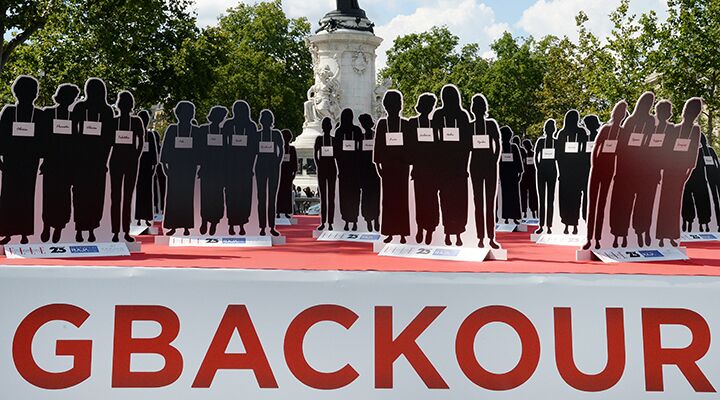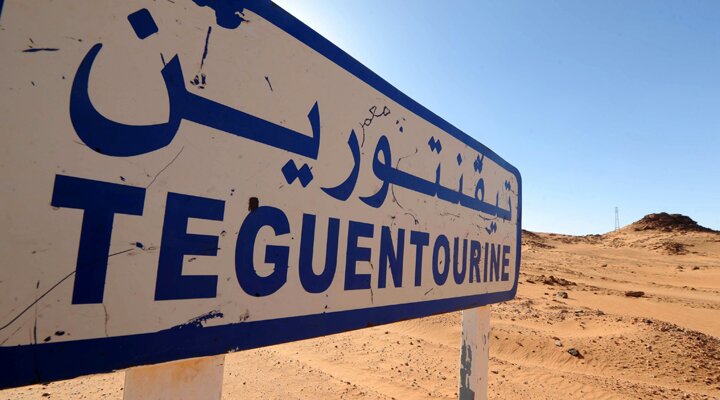
Islamic Terrorist Group Declares Caliphate in Nigeria
Terrorist group Boko Haram has declared that it has established a caliphate in northern Nigeria according to a video obtained by Agence France Presse, August 24.
The declaration comes as the terrorist group’s destructive power continues to grow. The terrorists have killed more than 4,000 people already this year according to recent figures from Amnesty International. In the four years prior to this, they killed 3,600. The United Nations estimates that the group has forced 650,000 to flee their homes.
Boko Haram gained international notoriety when it kidnapped nearly 300 Nigerian school girls and the world responded with the #BringBackOurGirls campaign. Despite celebrity support from around the world, including American First Lady Michelle Obama, the campaign made no difference.
Abubakar Shekau, Boko Haram’s leader, declared the caliphate after the group took control of Gwoza within the past few weeks. With a population size over a quarter of a million, Gwoza is the largest city Boko Haram has captured to date. Many of its inhabitants reportedly have fled to the nearby mountains.
Around the same time of the declaration, the British Broadcasting Corporation reported that 480 Nigerian soldiers had crossed into Cameroon. Nigeria claims that a clash with Boko Haram “saw the Nigerian troops charging through the borders in a tactical maneuver.”
“Eventually they found themselves on Cameroonian soil,” it wrote in a statement.
The bbc also reported that a group of soldiers refused to follow orders to fight Boko Haram. The Nigerian Army continually struggles with low morale.
Some dispute whether Boko Haram declared a caliphate or merely an Islamic state. Either way, it is declaring independence from Nigeria and signaling its intent to hold the territory it has captured. It is a bold move that indicates the group considers itself strong enough to retain its territory rather than simply retreat before a military assault as it has done in the past.
Boko Haram is also expanding its operations in Cameroon, even kidnapping the wife of the vice prime minister.
Nigeria has shown repeatedly that it lacks the ability to tackle Boko Haram, even with the limited assistance currently provided by the United States. It may be able to negotiate a peace—in Nigeria, terrorist groups tend to have ties, formal or informal, with leading politicians. The terrorist attacks stop if the group’s political faction gets what it wants.
So far, however, neither Nigeria nor Boko Haram has shown interest in negotiating. It may be that as a hard-line Islamist group, Boko Haram is a different breed of terrorists than Nigeria’s other militants.
“If Boko Haram ever develops truly international ambitions, it could carve out an arc of instability stretching from northern Nigeria via Cameroon, Central African Republic and South Sudan into East Africa,” Peter Dörrie wrote on the War Is Boring blog. He noted that a comprehensive defeat of the militant group would require “thousands of well-equipped foreign soldiers, a substantial overhaul of the Nigerian Army itself, as well as an admission on the part of the Nigerian government that it can’t handle the situation on its own.”

Until now, Boko Haram has not posed much of a threat to Western interests. Its “caliphate” is in northern Nigeria, far from the oil-rich south.
This could change. The group has links to al Qaeda, and some interpret the latest video to be a declaration of support to the Islamic State, and a pledge to join it.
Ultimately, Boko Haram is a dangerous militant group, growing steadily stronger, that could begin posing a threat to Western interests any time it chooses. Both Europe and America are reluctant to spend money on significant military missions in the area when their interests are not under threat.
But once those interests are threatened, they will get involved. We’ve seen this in Mali and the Central African Republic. Meanwhile in the Democratic Republic of Congo the UN’s first “intervention brigade” has been quietly bringing that region’s military groups under control.
Europe is battling radical Islam across North Africa. Continue to watch Boko Haram—the group could open up another front in this war.
For more on the fight between Europe and radical Islam in this region, read our article “Watch Algeria!”
